Exclusive 3:16 Interview With Julien Offray de La Mettrie
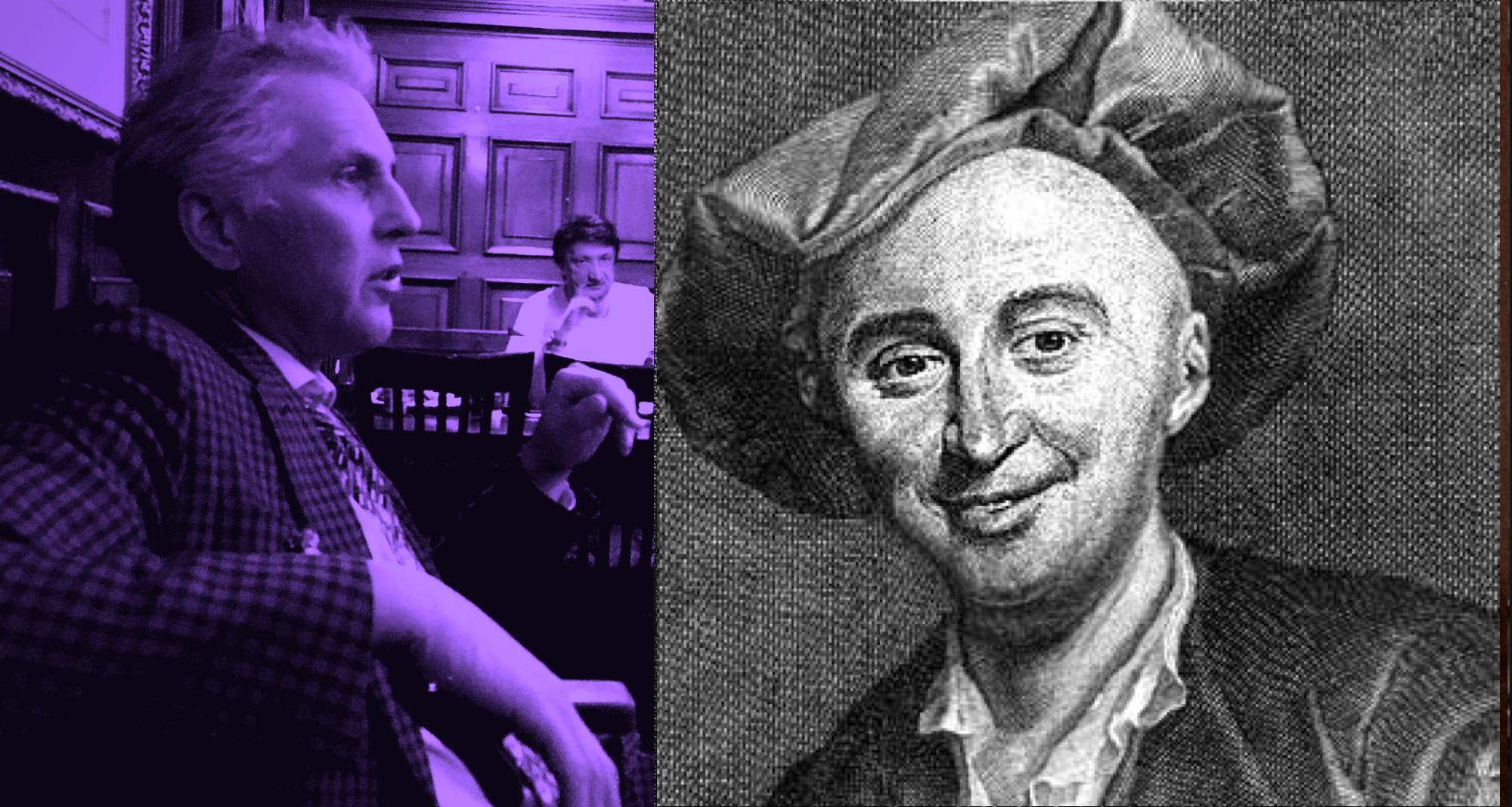
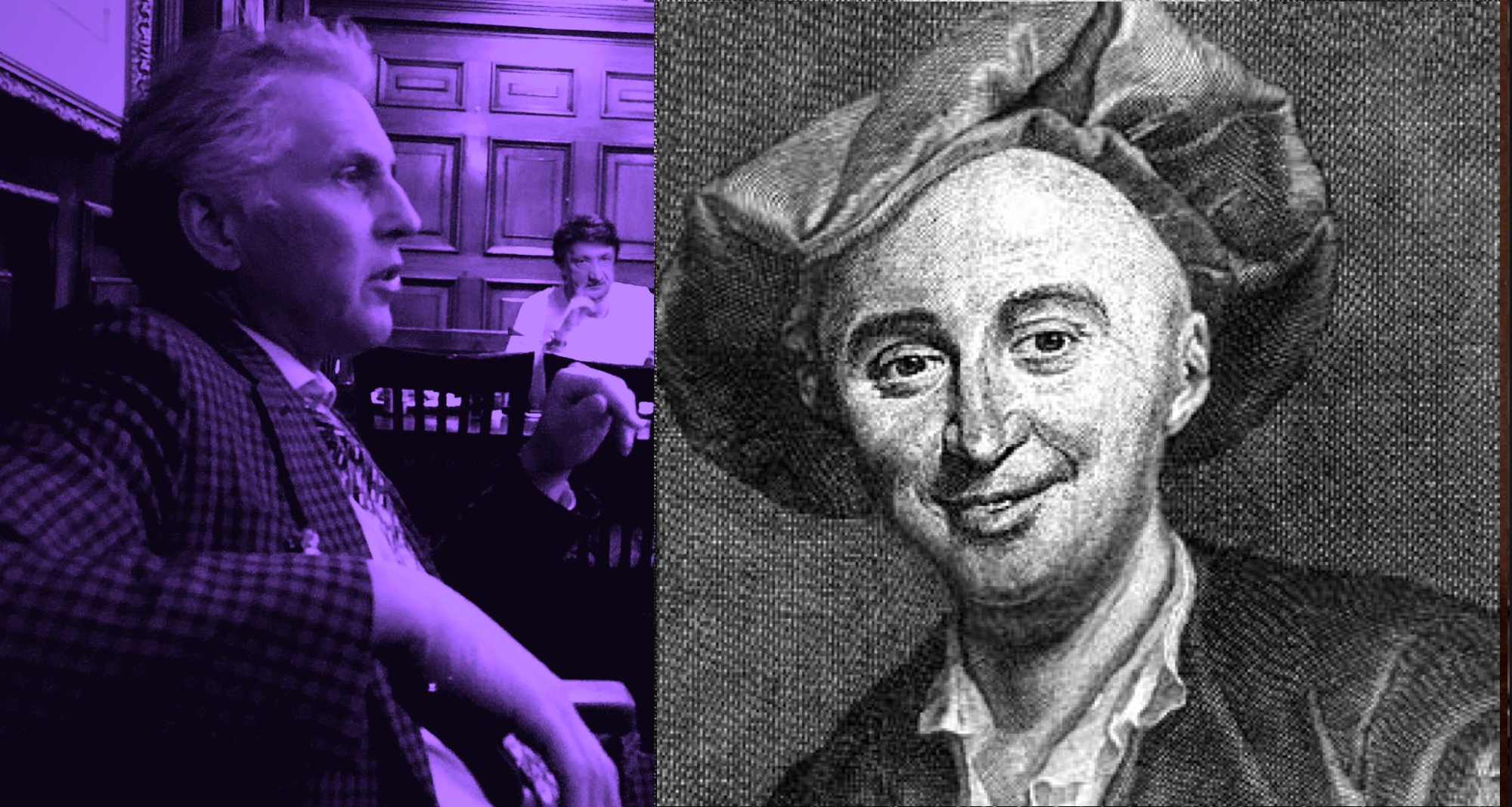
Julien Offray de La Mettrie is a French physician and philosopher whose Materialistic interpretation of psychic phenomena has laid the groundwork for future developments of behaviourism and played an important part in the history of modern Materialism. La Mettrie obtained a medical degree at Reims, studied medicine in Leiden under Hermann Boerhaave (some of whose works he translated into French), and served as surgeon to the French military. A personal illness convinced him that psychic phenomena were directly related to organic changes in the brain and nervous system. The outcry following publication of these views in Histoire naturelle de l’âme forced his departure from Paris. The book was burned by the public hangman. In Holland La Mettrie published L’Homme-machine ( L’Homme Machine: A Study in the Origins of an Idea, ), developing more boldly and completely, and with great originality, his Materialistic views. The ethics of these principles were worked out in Discours sur le bonheur ou l’anti-Sénèque (“Discourse on Happiness, or the Anti-Seneca”). He was then forced to leave Holland but was welcomed in Berlin by Frederick the Great, made court reader, and appointed to the academy of science. In accord with his belief that the pleasure of the senses is the purpose of life (Le Petit Homme à longue queue,; “The Small Man With A Long Penis”), he remains a carefree hedonist.
3:16: What made you become a philosopher?
Julien Offray de La Mettrie: It is not enough for a wise man to study nature and truth; he should dare state truth for the benefit of the few who are willing and able to think. As for the rest, who are voluntarily slaves of prejudice, they can no more attain truth, than frogs can fly.
3:16: Wow. That’s in your face stuff.
JM: Too right Richard.
3:16: So what’s your philosophy about?
JM: I reduce to two the systems of philosophy which deal with man's soul. The first and older system is materialism; the second is spiritualism.
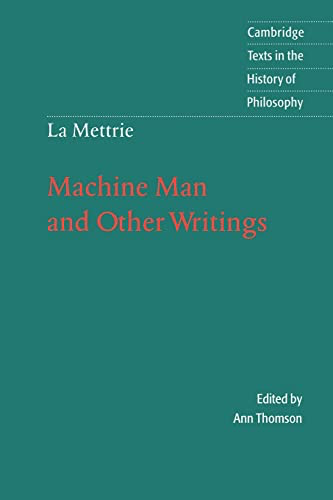
3:16: So it’s about the hard question of the relationship between mind and matter?
JM: Dead on Richard. The metaphysicians who have hinted that matter may well be endowed with the faculty of thought have perhaps not reasoned ill. For there is in this case a certain advantage in their inadequate way of expressing their meaning. In truth, to ask whether matter can think, without considering it otherwise than in itself, is like asking whether matter can tell time. It may be foreseen that we shall avoid this reef upon which Locke had the bad luck to shipwreck.
3:16: Lebniz had a go at this didn’t he?
JM: The Leibnizians with their monads have set up an unintelligible hypothesis. They have rather spiritualized matter than materialized the soul. How can we define a being whose nature is absolutely unknown to us?
3:16: Fair point, fair point. What about Descartes and his dualism?
JM: Not cool. Descartes and all the Cartesians, among whom the followers of Malebranche have long been numbered, have made the same mistake. They have taken for granted two distinct substances in man, as if they had seen them, and positively counted them.
3:16: You talk about souls – isn’t that a theological term?
JM: Richard, you’re on to something there. The wisest men have declared that the soul can not know itself save by the light of faith. However, as reasonable beings they have thought that they could reserve for themselves the right of examining what the Bible means by the word ``spirit,'' which it uses in speaking of the human soul. And if in their investigation, they do not agree with the theologians on this point, are the theologians more in agreement among themselves on all other points?
Here is the result in a few words of all their reflections. If there is a God, he is the Author of nature was well as of revelation. He has given us the one to explain the other, and reason to make them agree. To distrust the knowledge that can be drawn from the study of animated bodies, is to regard nature and revelation as two contraries which destroy each other, and consequently to dare uphold the absurd doctrine, that God contradicts Himself in His various works and deceives us. If there is a revelation, it can not then contradict nature. By nature only can we understand the meaning of the words of the Gospel, of which experience is the only truly interpreter. In fact, the commentators before our time have only obscured the truth.
We can judge of this by the author of the Spectacle of Nature. ``It is astonishing,'' he says concerning Locke, ``that a man who degrades our soul far enough to consider it a soul of clay should dare set up reason as judge and sovereign arbiter of the mysteries of faith, for,'' he adds, ``what an astonishing idea of Christianity one would have, if one were to follow reason.'' Not only do these reflections fail to elucidate faith, but they also constitute such frivolous objections to the method of those who undertake to interpret the Scripture, that I am almost ashamed to waste time in refuting them.
3:16: How come ?
JM: The excellence of reason does not depend on a big word devoid of meaning (immateriality), but on the force, extent, and perspicuity of reason itself. Thus a ``soul of clay'' which should discover, at one glance, as it were, the relations and the consequences of an infinite number of ideas hard to understand, would evidently be preferable to a foolish and stupid soul, though that were composed of the most precious elements. A man is not a philosopher because, with Pliny, he blushes over the wretchedness of our origin. What seems vile is here the most precious of things, and seems to be the object of nature's highest art and most elaborate care. But as man, even though he should come from an apparently still more lowly source, would yet be the most perfect of all beings, so whatever the origin of his soul, if it is pure, noble, and lofty, it is a beautiful soul which dignifies the man endowed with it.
3:16: So theologians can’t help us because they restrict a priori what an answer could look like?
JM: Spot on. Man is so complicated a machine that it is impossible to get a clear idea of the machine beforehand, and hence impossible to define it. For this reason, all the investigations have been vain, which the greatest philosophers have made à priori, that is to to say, in so far as they use, as it were, the wings of the spirit. Thus it is only à posteriori or by trying to disentangle the soul from the organs of the body, so to speak, that one can reach the highest probability concerning man's own nature, even though one can not discover with certainty what his nature is. One can and one even ought to admire all these fine geniuses in their most useless works, such men as Descartes, Malebranche, Leibnitz, Wolff and the rest, but what profit, I ask, has any one gained from their profound meditations, and from all their works?
Let us start out then to discover not what has been thought, but what must be thought for the sake of repose in life. There are as many different minds, different characters, and different customs, as there are different temperaments. Even Galen knew this truth which Descartes carried so far as to claim that medicine alone can change minds and morals, along with bodies.
3:16: So we need to remember what we already know about the causal links between bodies and minds?
JM: What was needed to change the bravery of Caius Julius, Seneca, or Petronius into cowardice or faintheartedness? Merely an obstruction in the spleen, in the liver, an impediment in the portal vein. Why? Because the imagination is obstructed along with the viscera, and this gives rise to all the singular phenomena of hysteria and hypochondria. What can I add to the stories already told of those who imagine themselves transformed into wolf−men, cocks or vampires, or of those who think that the dead feed upon them? Why should I stop to speak of the man who imagines that his nose or some other member is of glass? The way to help this man to regain his faculties and his own flesh−and−blood nose is to advise him to sleep on hay, lest he break the fragile organ, and then to set fire to the hay that he may be afraid of being burned − a far which has sometimes cured paralysis. But I must touch lightly on facts which everybody knows.
3:16: So how should we think about all this?
JM: The human body is a machine which winds its own springs. It is the living image of perpetual movement.
3:16: That’s deep.
JM: We think we are, and in fact we are, good men, only as we are gay or brave; everything depends on the way our machine is running. One is sometimes inclined to say that the soul is situated in the stomach, and that Van Helmont, who said that the seat of the soul was in the pylorus, made only the mistake of taking the part for the whole.
3:16: I am kinder if not hungry come to think of it. Can you see the soul in the body?
JM: Look at the portraits of Locke, of Steele, of Boerhaave, of Maupertuis, and the rest, and you will not be surprised to find strong faces and eagle eyes. Look over a multitude of others, and you can always distinguish the man of talent from the man of genius, and often even an honest man from a scoundrel. For example it has been noticed that a celebrated poet combines (in his portrait) the look of a pickpocket with the fire of Prometheus. History provides us with a noteworthy example of the power of temperature. The famous Duke of Guise was so strongly convinced that Henry the Third, in whose power he had so often been, would never dare assassinate him, that he went to Blois. When the Chancellor Chiverny learned of the duke's departure, he cried, ``He is lost.'' After this fatal prediction had been fulfilled by the event, Chiverny was asked why he made it. ``I have known the king for twenty years,'' said he; ``he is naturally kind and even weakly indulgent, but I have noticed that when it is cold, it takes nothing at all to provoke him and send him into a passion.''
Such is the influence of climate, that a man who goes from one climate to another, feels the change, in spite of himself. He is a walking plant which has transplanted itself; if the climate is not the same, it will surely either degenerate or improve. Furthermore, we catch everything from those with whom we come in contact; their gestures, their accent, etc.; just as the eyelid is instinctively lowered when a blow is foreseen, or (as for the same reason) the body of the spectator mechanically imitates, in spite of himself, all the motions of a good mimic.
3:16: So the body and mind go together?
JM: Yes. The diverse states of the soul are always correlative with those of the body.
3:16: So is anatomy important then to discover the mind?
JM: We should make use of comparative anatomy; let us lay bare the organs of man and of animals. How can human nature be known, if we may not derive any light from an exact comparison of the structure of man and of animals?
3:16: So we compare ourselves with other animals and draw conclusions about what’s going on with us?
JM: In general, the form and the structure of the brains of quadrupeds are almost the same as those of the brain of man; the same shape, the same arrangement everywhere, with this essential difference, that of all the animals man is the one whose brain is largest, and, in proportion to its mass, more convoluted than the brain of any other animal; then come the monkey, the beaver, the elephant, the dog, the fox, the cat. Next after all the quadrupeds, birds have the largest brains. Fish have large heads, but these are void of sense, like the heads of many men. Fish have no corpus callosum, and very little brain, while insects entirely lack brain. The fiercer animals are, the less brain they have. The more one gains in intelligence the more one loses in instinct. Among animals, some learn to speak and sing; they remember tunes, and strike the notes as exactly as a musician. Others, for instance the ape, show more intelligence, and yet cannot learn music. What is the reason for this, except some defect in the organs of speech? Why then should the education of monkeys be impossible?
Locke, who was certainly never suspected of credulity, found no difficulty in believing the story told by Sir William Temple in his memoirs, about a parrot which could answer rationally, and which had learned to carry on a kind of connected conversation, as we do. I know that people have ridiculed this great metaphysician; but suppose some one should have announced that reproduction sometimes take place without eggs or a female, would he have found many partisans? Yet M. Trembley has found cases where reproduction takes place without copulation and by fission. Could not the device which opens the Eustachian canal of the deaf, open that of apes?
3:16: So you’re clear that animals and mankind can be analysed in the same way?
JM: The transition from animals to man is not violent, as true philosophers will admit. What was man before the invention of words and the knowledge of language? An animal of his own species with much less instinct than the others. Words, languages, laws, sciences, and the fine arts have come, and by them finally the rough diamond of our mind has been polished. Man has been trained in the same way as animals. He has become an author, as they have become beasts of burden.
3:16: We are animals after all.
JM: In spite of all these advantages of man over animals, it is doing him honour to place him in the same class. For, truly, up to a certain age, he is more of an animal than they, since at birth he has less instinct. What animal would die of hunger in the midst of a river of milk? Man alone. Like that child of olden time whom a modern writer refers, following Arnobius, he knows neither the foods suitable for him, nor the water that can drown him, nor the fire that can reduce him to ashes. Light a wax candle for the first time under a child's eyes, and he will mechanically put his fingers in the flame as if to find out what is the new thing that he sees. It is at his own cost that he will learn of the danger, but he will not be caught again.
Or, put the child with an animal on a precipice, the child alone falls off; he drowns where the animal would save itself by swimming. At fourteen or fifteen years the child knows hardly anything of the great pleasures in store for him, in the reproduction of his species; when he is a youth, he does not know exactly how to behave in a game which nature teaches animals so quickly. He hides himself as if he were ashamed of taking pleasure, and of having been made to be happy, while animals frankly glory in being Cynics.
3:16: Hey but some say there are things in man that no animal has, such as an awareness of good and evil?
JM: Is this objection, or rather this assertion, based on observation? An assertion unfounded on observation may be rejected by a philosopher. Have we ever had a single experience which convinces us that man alone has been enlightened by a ray denied all other animals? Let no one object that animals, for the most part, are savage beasts, incapable of realizing the evil that they do; for do all men discriminate better between vice and virtue? There is ferocity in our species as well as in theirs. Men who are in the barbarous habit of breaking the natural law are not tormented as much by it, as those who transgress for the first time, and who have not been hardened by the force of habit. The same thing is true of animals as of men − both may be more or less ferocious in temperament, and both become more so by living with others like themselves.
But a gentle and peaceful animal which lives among other animals of the same disposition and of gentle nurture, will be an enemy of blood and carnage; it will blush internally at having shed blood. But even if I suppose that the natural law has not been given to animals, Richard. What will be the consequences of this supposition? Man is not moulded from a costlier clay; nature has used but one dough, and has merely varied the leaven. Therefore if animals do not repent for having violated this inmost feeling of good and evil, or rather if they absolutely lack it, man must necessarily be in the same condition. Farewell then to the natural law and all the fine treatises published about it!
3:16: So we became human by getting speech?
JM: Nothing, as any one can see, is so simple as the mechanism of our education. Everything may be reduced to sounds or words that pass from the mouth of one through the ears of another into his brain. At the same moment, he perceives through his eyes the shape of the bodies of which these words are the arbitrary signs. But who was the first to speak? Who was the first teacher of the human race? Who invented the means of utilizing the plasticity of our organism? I cannot answer: the names of these first splendid geniuses have been lost in the night of time. But art is the child of nature, so nature must have long preceded it.
3:16: And knowledge and imagination are linked for you aren’t they?
JM: I think that everything is the work of imagination, and that all the faculties of the soul can be correctly reduced to pure imagination in which they all consist. Thus judgment, reason, and memory are not absolute parts of the soul, but merely modifications of this kind of medullary screen upon which images of the objects painted in the eye are projected as by a magic lantern. And if such is the marvelous and incomprehensible result of the structure of the brain, if everything is perceived and explained by imagination, why should we divide the sensitive principle which thinks in man? Is not this a clear inconsistency in the partisans of the simplicity of the mind? For a thing that is divided can no longer without absurdity be regarded as indivisible. See to what one is brought by the abuse of language and by those fine words (spirituality, immateriality, etc.) used haphazard and not understood even by the most brilliant.
It is always imagination which apperceives, and imagination which represents to itself all objects along with their names and symbols; and thus, once again, imagination is the soul, since it plays all the roles of the soul. By the imagination, by its flattering brush, the cold skeleton of reason takes on living and ruddy flesh, by the imagination the sciences flourish, the arts are adorned, the wood speaks, the echoes sigh, the rocks weep, marble breathes, and all inanimate objects gain life. It is imagination again which adds the piquant charm of voluptuousness to the tenderness of an amorous heart; which makes tenderness bud in the study of the philosopher and of the dusty pedant, which, in a word, creates scholars as well as orators and poets. Foolishly decried by some, vainly praised by others, and misunderstood by all; it follows not only in the train of the graces and of the fine arts, it not only describes but can also measure nature. It reasons, judges, analyzes, compares, and investigates.
Could it feel so keenly the beauties of the pictures drawn for it, unless it discovered their relations? No, just as it cannot turn its thoughts on the pleasures of the senses, without enjoying their perfection or their voluptuousness, it cannot reflect on what it has mechanically conceived, without thus being judgment itself.
3:16: Does your naturalism mean that we should base our values – even our morals - on what nature gives us?
JM: Richard, I really do, yea. Man's preeminent advantage is his organism. In vain all writers of books on morals fail to regard as praiseworthy those qualities that come by nature, esteeming only the talents gained by dint of reflection and industry. For whence come, I ask, skill, learning, and virtue, if not from a disposition that makes us fit to become skillful, wise, and virtuous? And whence again, comes this disposition, if not from nature? Only though nature do we have any good qualities; to her we owe all that we are. Why then should I not esteem men with good natural qualities as much as men who shine by acquired and as it were borrowed virtues? Whatever the virtue may be, from whatever source it may come, it is worthy of esteem; the only question is, how to estimate it.
Mind, beauty, wealth, nobility, although the children of chance, all have their own value, as skill, learning and virtue all have theirs. Those upon whom nature has heaped her most costly gifts should pity those to whom these gifts have been refused; but, in their character of experts, they may feel their superiority without pride. A beautiful woman would be as foolish to think herself ugly, as an intelligent man to think himself a fool. An exaggerated modesty (a rare fault, to be sure) is a kind of ingratitude towards nature. An honest pride, on the contrary, is the mark of a strong and beautiful soul, revealed by manly features moulded by feeling.
3:16: Is education important to you?
JM: Oh Richard, if one's organism is an advantage, and the preeminent advantage, and the source of all others, education is the second. The best made brain would be a total loss without it, just as the best constituted man would be but a common peasant, without knowledge of the ways of the world. But, on the other hand, what would be the use of the most excellent school, without a matrix perfectly open to the entrance and conception of ideas?
3:16: So what’s intelligence?
JM: The imagination, raised by art to the rare and beautiful dignity of genius, apprehends exactly all the relations of the ideas it has conceived, and takes in easily an astounding number of objects, in order to deduce from them a long chain of consequences, which are again but new relations, produced by a comparison with the first, to which the soul finds a perfect resemblance. Such is, I think, the generation of intelligence. He who has the most imagination should be regarded as having the most intelligence or genius, for all these words are synonymous. The finest, greatest or strongest imagination is then the one most suited to the sciences as well as to the arts. I do not pretend to say whether more intellect is necessary to excel in the art of Aristotle or of Descartes than to excel in that of Euripides or of Sophocles, and whether nature has taken more trouble to make Newton than to make Corneille, though I doubt this.
See that bird on the bough: it seems always ready to fly away. Imagination is like the bird, always carried onward by the turmoil of the blood and the animal spirits. One wave leaves a mark, effaced by the one that follows; the soul pursues it, often in vain: it must expect to regret the loss of that which it has not quickly enough seized and fixed. Thus, imagination, the true image of time, is being ceaselessly destroyed and renewed. Such is the chaos and the continuous quick succession of our ideas: they drive each other away even as one wave yields to another.
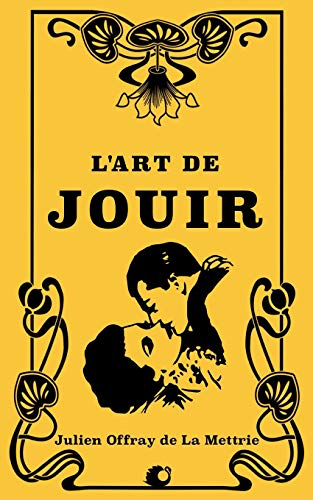
3:16: Wow! That’s a beautiful image. But hey, if all is process how does anything get fixed?
JM: If imagination does not, as it were, use one set of its muscles to maintain a kind of equilibrium with the fibres of the brain, to keep its attention for a while upon an object that is on the point of disappearing, and to prevent itself from contemplating prematurely another object − unless the imagination does all this, it will never be worthy of the fine name of judgment. It will express vividly what it has perceived in the same fashion: it will create orators, musicians, painters, poets, but never a single philosopher. So the imagination must be trained from childhood to bridle itself.
3:16: Don’t we have innate ideas at all?
JM: The Cartesians would here in vain make an onset upon me with their innate ideas. I certainly would not give myself a quarter of the trouble that Mr Locke took, to attack such chimeras. In truth, what is the use of writing a ponderous volume to prove a doctrine which became an axiom three thousand years ago?
3:16: But for you everything is dependent on natural laws? We’re all gripped by our natures? There’s no escaping it is there?
JM: It is impossible to destroy the natural law. The impress of it on all animals is so strong, that I have no doubt that the wildest and most savage have some moments of repentance. I believe that that cruel maid of Chalons in Champagne must have sorrowed for her crime, if she really ate her sister. I think that the same thing is true of all those who commit crimes, even involuntary or temperamental crimes: true of Gaston of Orleans who could not help stealing; of a certain woman who was subject to the same crime when pregnant, and whose children inherited it; of the woman who, in the same condition, ate her husband; of that other women who killed her children, salted their bodies, and ate a piece of them every day, as a little relish; of that daughter of a thief and cannibal who at twelve years followed in his steps, although she had been orphaned when she was a year old, and had been brought up by honest people; to say nothing of many other examples of which the records of our observers are full, all of them proving that there are a thousand hereditary vices and virtues which are transmitted from parents to children as those of the foster mother pass to the children she nurses.
Now, I believe and admit that these wretches do not for the most part feel at the time the enormity of their actions. Bulimia, or canine hunger, for example, can stifle all feeling; it is a mania of the stomach that one is compelled to satisfy, but what remorse must be in store for those women, when the come to themselves and grow sober, and remember the crimes they have committed against those they held most dear! What a punishment for an involuntary crime which they could not resist, of which they had no consciousness whatever! However, this is apparently not enough for the judges. For of these women, of whom I tell, one was cruelly beaten and burned, and another was buried alive. I realize that all this is demanded by the interest of society. But doubtless it is much to be wished that excellent physicians might be the only judges. They alone could tell the innocent criminal from the guilty. If reason is the slave of a depraved or mad desire, how can it control the desire?
3:16: So basically because we’re determined by nature we shouldn’t hold people responsible for their actions even if we have to respond to protect society?
JM: Yes. Criminals, scoundrels, ingrates, those in short without natural feelings, unhappy tyrants who are unworthy of life, in vain take a cruel pleasure in their barbarity, for there are calm moments of reflection in which the avenging conscience arises, testifies against them, and condemns them to be almost ceaselessly torn to pieces at their own hands. Whoever torments men is tormented by himself; and the sufferings that he will experience will be the just measure of those that he has inflicted. There is so much pleasure in doing good, in recognizing and appreciating what one receives, so much satisfaction in practising virtue, in being gentle, humane, kind, charitable, compassionate and generous (for this one word includes all the virtues), that I consider as sufficiently punished any one who is unfortunate enough not to have been born virtuous.
3:16: So what is a natural law?
JM: It is a feeling that teaches us what we should not do, because we would not wish it to be done to us. Should I dare add to this common idea, that this feeling seems to me but a kind of fear or dread, as salutary to the race as to the individual; for may it not be true that we respect the purse and life of others, only to save our own possessions, our honor, and ourselves; like those Axioms of Christianity who love God and embrace so many fantastic virtues, merely because they are afraid of hell!
3:16: This feeling then is innate in a way?
JM: Natural law is but an intimate feeling that, like all other feelings (thought included) belongs also to imagination. Evidently, therefore, natural law does not presuppose education, revelation, nor legislator, − provided one does not propose to confuse natural law with civil laws, in the ridiculous fashion of the theologians.
3:16: Does all this mean we shouldn’t believe in God?
JM: I do not mean to call in question the existence of a supreme being; on the contrary it seems to me that the greatest degree of probability is in favor of this belief. But since the existence of this being goes no further than that of any other toward proving the need of worship, it is a theoretic truth with very little practical value. Therefore, since we may say, after such long experience, that religion does not imply exact honesty, we are authorized by the same reasons to think that atheism does not exclude it.
3:16: What do you make of the argument from design – that to have a universe like ours someone must have made it, that it couldn’t be a result of blind chance?
JM: Deists, and even Christians, should be content to point out that throughout the animal kingdom the same aims are pursued and accomplished by an infinite number of different mechanisms, all of them however exactly geometrical. For what stronger weapons could there be with which to overthrow atheists? It is true that if my reason does not deceive me, and the whole universe seem to have been designed for this unity of aim. In ears we find everywhere a striking variety, and yet the difference of structure in men, animals, birds, and fishes, does not produce different uses. All ears are so mathematically made, that they tend equally to one and the same end, namely hearing. But would Chance, the deist asks, be a great enough geometrician to vary thus, at pleasure, the works of which she is supposed to be the author, without being hindered by so great a diversity from gaining the same end? But Richard, to destroy chance is not to prove the existence of a supreme being, since there may be some other thing which is neither chance nor God − I mean, nature. It follows that the study of nature can only make unbelievers. The weight of the universe therefore far from crushing a real atheist does not even shake him. The summary of fine arguments eternally divide the philosophers. I do not take either side.
3:16: Hey now, does that make you a Pyrrhonian?
JM: Sure , sure.
3:16: So in your view do we even need to talk about souls or minds anymore if everything is matter, if bodies?
JM: The soul is but an empty word, of which no one has any idea, and which an enlightened man should only use to signify the part in us that thinks. Given the least principle of motion, animated bodies will have all that is necessary for moving, feeling, thinking, repenting, or in a word for conducting themselves in the physical realm, and in the moral realm which depends upon it.
3:16: So this is why you think men are machines. Everything we do is mechanical?
JM: What else? If now any one ask me where is this innate force in our bodies, I answer that it very clearly resides in what the ancients called the parenchyma, that is to say, in the very substance of the organs not including the veins, the arteries, the nerves, in a word, that it resides in the organization of the whole body, and that consequently each organ contains within itself forces more or less active according to the need of them.
Is it not in a purely mechanical way that the body shrinks back when it is struck with terror at the sight of an unforeseen precipice, that the eyelids are lowered at the menace of a blow, as some have remarked, and that the pupil contracts in broad daylight to save the retina, and dilates to see objects in darkness? Is it not by mechanical means that the pores of the skin close in winter so that the cold cannot penetrate to the interior of the blood vessels, and that the stomach vomits when it is irritated by poison, by a certain quantity of opium and by all emetics, etc.?
To admit a soul as explanation of them, is to be reduced to explaining phenomena by the operations of the Holy Spirit. In fact, if what thinks in my brain is not a part of this organ and therefore of the whole body, why does my blood boil, and the fever of my mind pass into my veins, when lying quietly in bed, I am forming the plan of some work or carrying on an abstract calculation? Put this question to men of imagination, to great poets, to men who are enraptured by the felicitous expression of sentiment, and transported by an exquisite fancy or by the charms of nature, of truth, or of virtue! By their enthusiasm, by what they will tell you they have experienced, you will judge the cause by its effects; by that harmony which Borelli, a mere anatomist, understood better than all the Leibnizians, you will comprehend the material unity of man. In short, if the nerve−tension which causes pain occasions also the fever by which the distracted mind looses its will−power, and if, conversely, the mind too much excited, disturbs the body (and kindles that inner fire which killed Bayle while he was still so young)l if an agitation rouses my desire and my ardent wish for what, a moment ago, I cared nothing about, and if in their turn certain brain impressions excite the same longing and the same desires, then why should we regard as double what is manifestly one being? 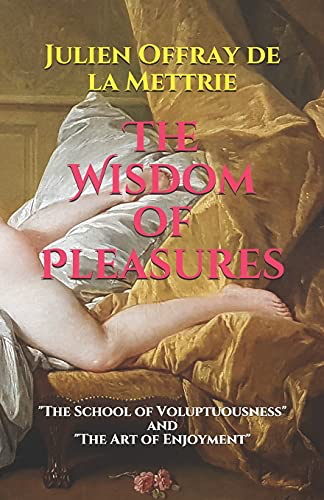
3:16: Some of the ancient Greeks linked mind and bodies via health regimes didn’t they?
JM: Philosophers have always had in mind the health of the body, to preserve the health of the soul - Pythagoras gave rules for the diet as carefully as Plato forbade wine. The regime suited to the body is always the one with which sane physicians think they must begin, when it is a question of forming the mind, and of instructing it in the knowledge of truth and virtue; but these are vain words in the disorder of illness, and in the tumult of the senses. Without the precepts of hygiene, Epictetus, Socrates, Plato, and the rest preach in vain: all ethics is fruitless for one who lacks his share of temperance; it is the source of all virtues, as intemperance is the source of all vices.
3:16: It’s a bit weird to think we’re just wound up springs of matter?
JM: Richard, man is but an animal, or a collection of springs which wind each other up. If these springs differ among themselves, these differences consist only in their position and in their degrees of strength, and never in their nature; wherefore the soul is but a principle of motion or a material and sensible part of the brain, which can be regarded, without fear of error, as the mainspring of the whole machine, having a visible influence on all the parts. The soul seems even to have been made for the brain, so that all other parts of the system are but a kind of emanation from the brain. The body is but a watch, whose watchmaker is the new chyle.
3:16: The what?
JM: The milky fluid containing fat droplets which drains from the lacteals of the small intestine into the lymphatic system during digestion.
3:16: Awesome.
JM: I am aware that this opinion has not been relished by all scholars, and that Stahl especially had much scorn for it. This great chemist had wished to persuade us that the soul is the sole cause of all our movements. But this is to speak as a fanatic and not as a philosopher. Glance at a violinist. What flexibility, what lightness in his fingers! The movements are so quick, that it seems almost as if there were no succession. But I pray, or rather I challenge, the followers of Stahl who understand so perfectly all that our soul can do, to tell me how it could possibly execute so many motions so quickly, motions, moreover, which take place so far from the soul, and in so many different places. That is to suppose that a flute player could play brilliant cadences on an infinite number of holes that he could not know, and on which he could not even put his finger!
3:16: So how did feelings come from just bodily movements?
JM: Many excellent philosophers have shown that thought is but a faculty of feeling, and that the reasonable soul is but the feeling soul engaged in contemplating its ideas and in reasoning! As to the development of feeling and motion, it is absurd to waste time seeking for its mechanism. The nature of motion is as unknown to us as that of matter. How can we discover how it is produced unless, like the author of The History of the Soul, we resuscitate the old and unintelligible doctrine of substantial forms? I am then quite as content not to know how inert and simple matter becomes active and highly organized, as not to be able to look at the sun without red glasses; and I am as little disquieted concerning the other incomprehensible wonders of nature, the production of feeling and of thought in a being which earlier appeared to our limited eyes as a mere clod of clay.
3:16: But why must it be about movement?
JM: Grant only that organized matter is endowed with a principle of motion, which alone differentiates it from the inorganic (and can one deny this in the face of the most incontestable observation?) and that among animals, as I have sufficiently proved, everything depends upon the diversity of this organization: these admissions suffice for guessing the riddle of substances and of man. It thus appears that there is but one type of organization in the universe, and that man is the most perfect example.
3:16: So everything is nature and nature is just very complicated mechanics and man is part of this?
JM: He is to the ape, and to the most intelligent animals, as the planetary pendulum of Huyghens is to a watch of Julien Leroy. More instruments, more wheels and more springs were necessary to mark the movements of the planets than to mark or strike the hours; and Vaucanson, who needed more skill for making his flute player than for making his duck, would have needed still more to make a talking man, a mechanism no longer to be regarded as impossible, especially in the hands of another Prometheus. The human body is a watch, a large watch constructed with such skill and ingenuity, that if the wheel which marks the second happens to stop, the minute wheel turns and keeps on going its round, and in the same way the quarter−hour wheel, and all the others go on running when the first wheels have stopped because rusty or, for any reason, out of order.
Is it not for a similar reason that the stoppage of a few blood vessels is not enough to destroy or suspend the strength of the movement which is in the heart as in the mainspring of the machine; since, on the contrary, the fluids whose volume is diminished, having a shorter road to travel, cover the ground more quickly, borne on as by a fresh current which the energy of the heart increases in proportion to the resistance it encounters at the ends of the blood−vessels?
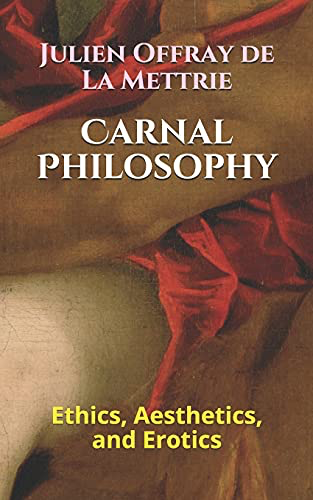
3:16: Descartes thought animals were like this didn’t he. He should have just extended his analysis of animals to mankind too then?
JM: I believe that Descartes would be a man in every way worthy of respect, if, born in a century that he had not been obliged to enlighten, he had known the value of experiment and observation, and the danger of cutting loose from them. But it is none the less just for me to make an authentic reparation to this great man for all the insignificant philosophers −−− poor jesters, and poor imitators of Locke −−− who instead of laughing impudently at Descartes, might better realize that without him the field of philosophy, like the field of science without Newton, might perhaps be still uncultivated.
This celebrated philosopher, it is true, was much deceived, and no one denies that. But at any rate he understood animal nature, he was the first to prove completely that animals are pure machines. And after a discovery of this importance demanding so much sagacity, how can we without ingratitude fail to pardon all his errors! In my eyes, they are all atoned for by that great confession. For after all, although he extols the distinctness of the two substances, this is plainly but a trick of skill, a ruse of style, to make theologians swallow a poison, hidden in the shade of an analogy which strikes everybody else and which they alone fail to notice. For it is this, this strong analogy, which forces all scholars and wise judges to confess that these proud and vain beings, more distinguished by their pride than by the name of men however much they may wish to exalt themselves, are at bottom only animals and machines which, though upright, go on all fours.
They all have this marvelous instinct, which is developed by education into mind, and which always has its seat in the brain (or for want of that when it is lacking or hardened, in the medulla oblongata) and never in the cerebellum; for I have often seen the cerebellum injured, and other observers have found it hardened, when the soul has not ceased to fulfil its functions.
3:16: You deny there’s any contradiction in saying a body can perceive and have feelings then then?
JM: Keep up Richard. Of course I do. To be a machine, to feel, to think, to know how to distinguish good from bad, as well as blue from yellow, in a word, to be born with an intelligence and a sure moral instinct, and to be but an animal, are therefore characters which are no more contradictory, than to be an ape or a parrot and to be able to give oneself pleasure.
3:16: It’s hard to conceive of matter feeling though nevertheless.
JM: Let it not be forgotten that this substance reveals to us only ineffable characters. Do we understand better how extension is derived from its essence, how it can be moved by a primitive force whose action is exerted without contact, and a thousand other miracles so hidden from the gaze of the most penetrating eyes, that (to paraphrase the idea of an illustrious modern writer) they reveal only the curtain which conceals them? But might not one suppose as some have supposed, that the feeling which is observed in animated bodies, might belong to a being distinct from the matter of these bodies, to a substance of a different nature united to them? Does the light of reason allow us in good faith to admit such conjectures? We know in bodies only matter, and we observe the faculty of feeling only in bodies: on what foundation then can we erect an ideal being, disowned by all our knowledge?
3:16: So if we accept matter is mysterious we can better conceive that it might be able to feel and so on?
JM: Richard, we are ignorant whether matter has in itself the faculty of feeling, or only the power of acquiring it by those modifications or forms to which matter is susceptible; for it is true that this faculty of feeling appears only in organic bodies. This is then another new faculty which might exist only potentially in matter, like all the others which have been mentioned; and this was the hypothesis of the ancients, whose philosophy, full of insight and penetration, deserves to be raised above the ruins of the philosophy of the moderns. It is in vain that the latter disdain the sources too remote from them. Ancient philosophy will always hold its own among those who are worthy to judge it, because it forms (at least in relation to the subject of which I am treating) a system that is solid and well articulated like the body, whereas all these scattered members of modern philosophy form no system.
3:16: Actually, I meant to ask earlier, but let me do it now - what is matter then?
JM: All philosophers who have examined attentively the nature of matter, considered in itself, independently of all the forms which constitute bodies, have discovered in this substance, diverse properties proceeding from an absolutely unknown essence. Such are - the capacity of taking on different forms, which are produced in matter itself, by which matter can acquire moving force and the faculty of feeling; - and actual extension, which these philosophers have rightly recognized as an attribute, but not as the essence, of matter.
However, there have been some, among others Descartes, who have insisted on reducing the essence of matter to simple extension, and on limiting all the properties of matter to those of extension; but this opinion has been rejected by all other modern philosophers, ... so that the power of acquiring moving force, and the faculty of feeling as well as that of extension, have been from all time considered as essential properties of matter.
3:16: So do we know the essence of matter?
JM: No Richard. But although we have no idea of the essence of matter, we can not refuse to admit the existence of the properties which our senses discover in it. I open my eyes, and I see around me only matter, or the extended. Extension is then a property which always belongs to all matter, which can belong to matter alone, and which therefore is inseparable from the substance of matter.Truly, if we consult our knowledge, which is gained entirely from the senses, we cannot conceive of matter, or the substance of bodies, without having the idea of a being which is at the same time long, broad, and deep; because the idea of these three dimensions is necessarily bound up with our idea of every magnitude or quantity. Those philosophers who have meditated most concerning matter do not understand by the extension of this substance, a solid extension composed of distinct parts, capable of resistance.
Nothing is united, nothing is divided in this extension; for there must be a force which separates to divide, and another force to unite the divided parts. But in the opinion of these physical philosophers matter has no actually active force, because every force can come only from movement, or from some impulse or tendency toward movement, and they recognize in matter, stripped of all form by abstraction, only a potential moving force.
3:16: Oh wow. This is pretty cosmic.
JM: No doubt about it ! This theory is hard to conceive, but given its principles, it is rigorously true in its consequences. It is one of those algebraic truths which is more readily believed than conceived by the mind. Modern writers have given us but an inexact idea of matter in attempting (through a confusion ill understood) to give this name to the substance of bodies. For, once more, matter, or the passive principle of the substance of bodies, constitutes only one part of this substance. Thus it is not surprising that these modern thinkers have not discovered in matter moving force and the faculty of feeling. It seems to me, that if there is an active principle it must have, in the unknown essence of matter, another source than extension. Extension and moving force, are then but potentialities of the substance of bodies. early masters had cast their eyes on all the phenomena of nature, they discovered in the substance of bodies, the power of self-movement.
In fact, this substance either moves itself, or when it is in motion, the motion is communicated to it by another substance. But can anything be seen in this substance, save the substance itself in action; and if sometimes it seems to receive a motion that it has not, does it receive that motion from any cause other than this same kind of substance, whose parts act the one upon the other?
3:16: Descartes introduced the mind of God to be the other substance causing movement didn’t he? This is his occasionalism isn’t it?
JM: Yea. But if one infers another agent, I ask what agent, and I demand proofs of its existence. But since no one has the least idea of such an agent, it is not even a logical entity. Therefore it is clear that the ancients must have easily recognized an intrinsic force of motion within the substance of bodies, since in fact it is impossible to prove or conceive any other substance acting upon it. Descartes, a genius made to blaze new paths and to go astray in them, supposed with some other philosophers that God is the only efficient cause of motion, and that every instant He communicates motion to all bodies. But this opinion is but an hypothesis which he tried to adjust to the light of faith; and in so doing he was no longer attempting to speak as a philosopher or to philosophers. Above all he was not addressing those who can be convinced only by the force of evidence.
3:16: Should we stop thinking of ourselves as being important in nature’s scheme of things given we’re just natural machines?
JM: We are veritable moles in the field of nature; we achieve little more than the mole's journey and it is our pride which prescribes limits to the limitless.
3:16: But isn’t accepting this a bit of a let down? We’re just machines.
JM: Break the chain of your prejudices, arm yourselves with the torch of experience, and you will render nature the honour she deserves, instead of inferring anything to her disadvantage, from the ignorance in which she has left you. Only open wide your eyes, only disregard what you cannot understand, and you will see that the ploughman whose intelligence and ideas extend no further than the bounds of his furrow, does not differ essentially from the greatest genius, - a truth which the dissection of Descartes's and of Newton's brains would have proved; you will be persuaded that the imbecile and the fool are animals with human faces, as the intelligent ape is a little man in another shape; in short, you will learn that since everything depends absolutely on difference of organization , a well constructed animal which has studied astronomy, can predict an eclipse, as it can predict recovery or death when it has used its genius and its clearness of vision, for a time, in the school of Hippocrates and at the bedside of the sick. By this line of observations and truths, we come to connect the admirable power of thought with matter, without being able to see the links, because the subject of this attribute is essentially unknown to us.
3:16: But if we’re machines then we can’t believe in an afterlife or anything like that can we?
JM: Let us not say that every machine or every animal perishes altogether or assumes another form after death, for we know absolutely nothing about the subject. On the other hand, to assert that an immortal machine is a chimera or a logical fiction, is to reason as absurdly as caterpillars would reason if, seeing the cast−off skins of their fellow caterpillars, they should bitterly deplore the fate of their species, which to them would seem to come to nothing. The soul of these insects (for each animal has its own) is too limited to comprehend the metamorphoses of nature. Never one of the most skillful among them could have imagined that it was destined to become a butterfly. It is the same way with us. What more do we know of our destiny than of our origin? Let us then submit to an invincible ignorance on which our happiness depends.
3:16: So because we’re machines we’re limited in what we could ever understand. So what should our attitude be to death given what we know about our machine states?
JM: Be wise, just, tranquil about his fate, and therefore happy, await death without either fear or desire, cherish life (hardly understanding how disgust can corrupt a heart in this place of many delights); be filled with reverence, gratitude, affection, and tenderness for nature, in proportion to his feeling of the benefits he has received from nature; be happy, in short, in feeling nature, and in being present at the enchanting spectacle of the universe, we will surely never destroy nature either in himself or in others. The passions are ways of being or modifications of the internal organs, attracted or repulsed by objects, and are consequently subject in their own way to the physical laws of attraction and repulsion. Nature has created us solely to be happy.
3:16: That’s a crazy beautiful thought. And you said earlier that the naturalist won’t blame people for bad stuff didn’t you?
JM: Full of humanity, this man will love human character even in his enemies. Judge how he will treat others. He will pity the wicked without hating them; in his eyes, they will be but mis−made men. But in pardoning the faults of the structure of mind and body, he will none the less admire the beauties and the virtues of both. Those whom nature shall have favored will seem to him to deserve more respect than those whom she has treated in step−motherly fashion. Thus, as we have seen, natural gifts, the source of all acquirements, gain from the lips and heart of the materialist, the homage which every other thinker unjustly refuses them. In short, the materialist, convinced, in spite of the protests of his vanity, that is he but a machine or an animal, will not maltreat his kind, for he will know too well the nature of those actions, whose humanity is always in proportion to the degree of analogy proved above between human beings and animals; and following the natural law given to all animals, he will not wish to do to others what he would not wish them to do to him.
3:16: And is there just one thing in the universe out of which the universe is made?
JM: Are you following anything Richard? Man is a machine, and that in the whole universe there is but a single substance differently modified. This is no hypothesis set forth by dint of a number of postulates and assumptions; it is not the work of prejudice, nor even of my reason alone; I should have disdained a guide which I think to be so untrustworthy, had not my senses, bearing a torch, so to speak, induced me to follow reason by lighting the way themselves. Experience has thus spoken to me in behalf of reason; and in this way I have combined the two.
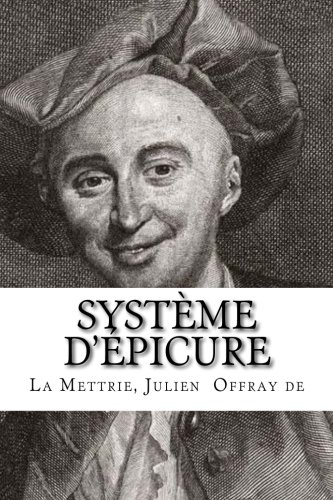
3:16: Just a thought – given we don’t know what matter is, but we sure as hell know what thoughts and feelings are, wouldn’t it be better to be an idealist about nature rather than a materialist and explain everything as mind?
JM: Happy mortal, he must have received a soul different from that of the rest of mankind,—a sovereign soul, which, not content with having some control over the voluntary muscles, easily held the reins of all the movements of the body, and could suspend them, calm them, or excite them, at its pleasure! With so despotic a mistress, in whose hands were, in a sense, the beating of the heart, and the laws of circulation, there could certainly be no fever, no pain, no weariness! The soul wills, and the springs play, contract or relax. But how did the springs of this machine get out of order so soon? He who has in himself so great a doctor, should be immortal.
3:16: Ok. So are there five books you could recommend to take us further into your philosophical world?
JM:
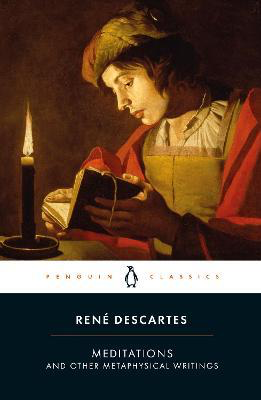
Descartes,
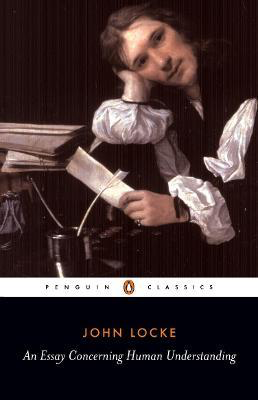
Locke,
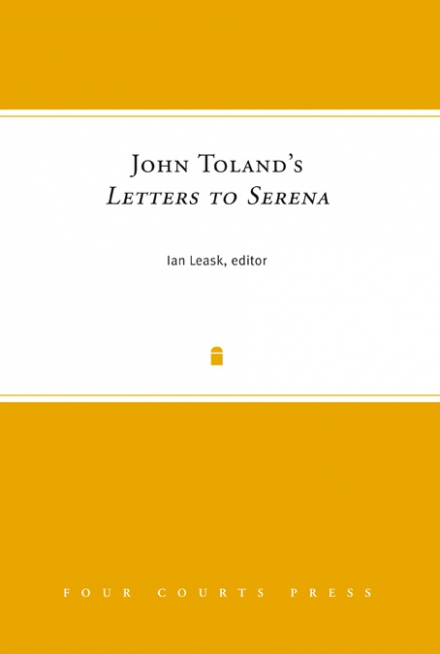
Toland,
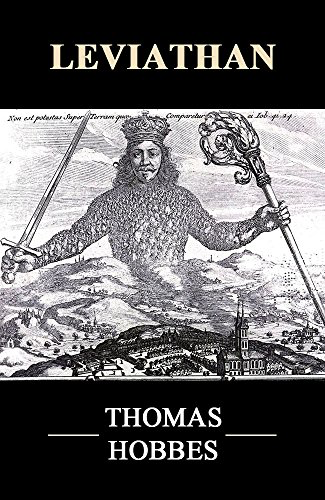
Hobbes,
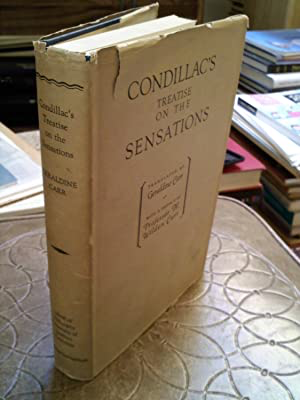
Condillac
Other Interviews: Smith, Buchner ,Lange, Newton, Berkeley, Hobbes, Locke, Cudworth, Hume, Leibniz, Leporin Erxleben, Fichte, Schiller, Herder, Kierkegaard, Schelling, Kant, Dilthey, Marx, Descartes, Hegel, Schopenhauer, Nietzsche
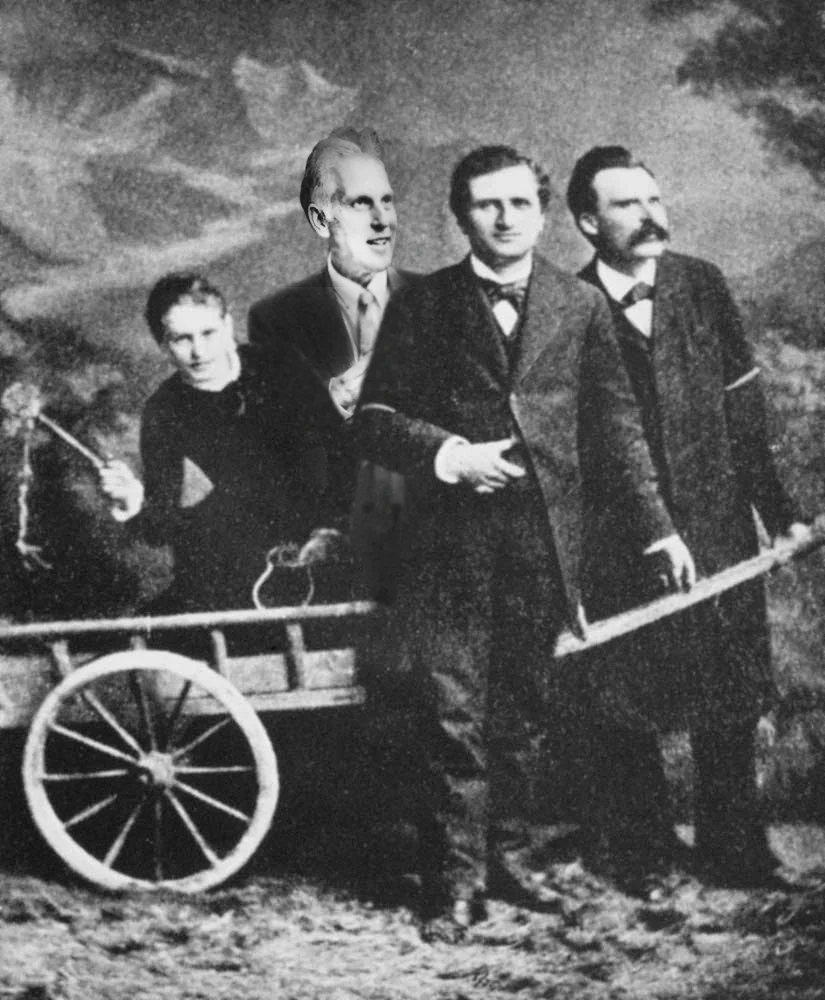
About the Author
Richard Marshall is still biding his time.